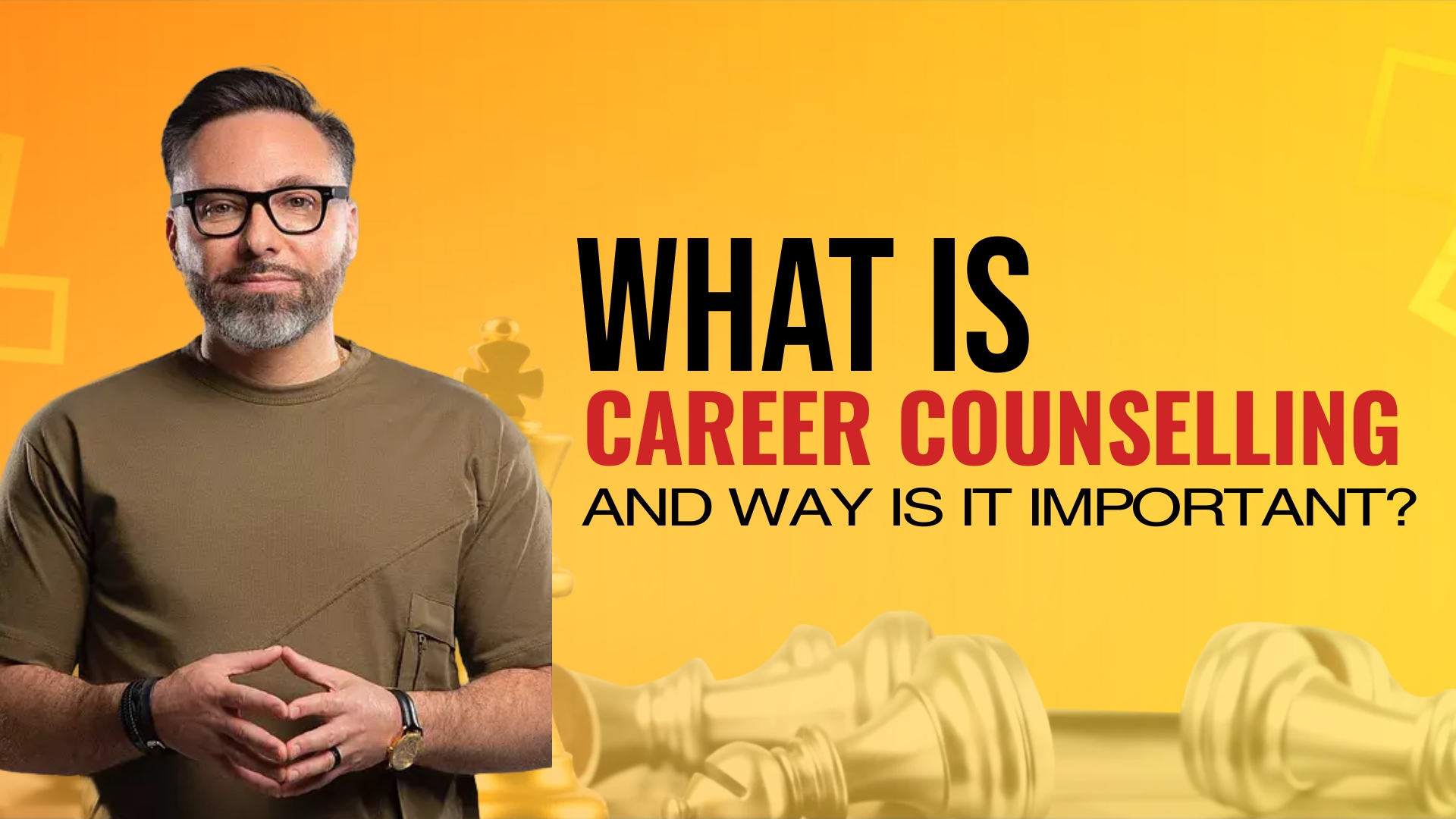
What exactly is career counselling and why is it important?
- Jul 24, 2024
- By Aimshala Admin

Choosing the right career is one of the most overwhelming decisions to make, especially for students. With countless choices available and societal pressures looming large, it’s easy to feel lost. That’s where career counseling comes in—a valuable resource designed to help individuals make informed decisions about their future. Let’s try to understand what career counseling is, its significance, and how it can benefit students.
Career counseling is a guided process where a trained professional helps individuals explore their career options and make informed decisions. This can involve assessing interests, skills, and values, as well as providing resources for job searching, resume building, and interview preparation. It’s not just about choosing a job; it’s about finding a path that aligns with your passions and goals.
Self-Assessment: The first step typically involves self-assessment. This includes identifying your strengths, weaknesses, interests, and values. Tools like psychometric tests can be used to gain insights into your personality and potential career paths. Exploration: After assessing yourself, the next step is to explore various career options. This includes researching industries, job roles, and educational requirements. Counselors provide valuable information to help you understand the job market. Goal Setting: Once you have a clearer idea of your options, you’ll work on setting realistic and achievable career goals. This includes short-term and long-term objectives tailored to your aspirations. Action Plan: The final step is creating an action plan. This might involve selecting relevant courses, internships, or skill-building activities that align with your career goals.
1. Clarifies Career Choices One of the biggest challenges students face is the overwhelming number of career choices. Career counseling helps clarify options by providing structured guidance. It enables you to narrow down your choices based on your unique interests and strengths. 2. Builds Confidence Making career decisions can be intimidating. Career counseling helps build your confidence by providing you with the necessary tools and information to make informed choices. Understanding your capabilities and options can significantly reduce anxiety and uncertainty. 3. Saves Time and Resources By engaging in career counseling, you can save valuable time and resources. Instead of navigating the job market on your own, a counselor can guide you toward the most suitable paths, helping you avoid costly mistakes. 4. Addresses Individual Needs Everyone has different aspirations and circumstances. Career counseling takes your individual needs into account, providing personalized advice that aligns with your goals and values. This tailored approach increases the likelihood of finding a fulfilling career. 5. Enhances Employability In today’s competitive job market, having the right skills and qualifications is crucial. Career counselors can help identify skill gaps and recommend courses or training to enhance your employability. This proactive approach makes you a more attractive candidate to potential employers. 6. Provides Networking Opportunities Career counselors often have extensive networks within various industries. They can connect you with professionals, internships, or job openings that you might not find on your own. This networking can be invaluable as you enter the job market. 7. Offers Ongoing Support Career counseling isn’t just a one-time event; it’s an ongoing process. Many counselors provide continuous support as you navigate your career journey. Whether you need help with job applications, interviews, or career transitions, they are there to assist you. 8. Helps with Work-Life Balance Understanding your career aspirations also involves considering your lifestyle. Career counseling helps you evaluate how different jobs align with your desired work-life balance. This is especially important in today’s fast-paced world, where burnout is common.
1. Early Guidance Engaging in career counseling during your school years allows you to explore options early. This proactive approach gives you time to develop necessary skills and qualifications before entering the job market. 2. Informed Decision-Making Students often face pressure from peers, family, and society when choosing a career path. Career counseling provides an objective perspective, helping you make decisions based on your interests rather than external pressures. 3. Understanding Educational Requirements Different careers require different educational paths. Career counselors can provide insights into the necessary qualifications, certifications, and degrees needed for various professions. This information can guide your academic choices. 4. Bridging the Gap There’s often a disconnect between education and industry requirements. Career counseling helps bridge this gap by providing insights into the skills and knowledge needed to succeed in the workforce. 5. Transitioning from Education to Employment The transition from student life to the workforce can be daunting. Career counseling prepares you for this transition by equipping you with job search strategies, resume writing skills, and interview techniques. 6. Lifelong Skills Career counseling equips you with skills that extend beyond job searching. You’ll learn how to assess opportunities, network effectively, and set realistic goals—skills that are invaluable throughout your career.
As the job market continues to evolve, the role of career counseling becomes increasingly important. With rapid technological advancements and shifting industry demands, having professional guidance can make a significant difference in your career journey. Engaging in career counseling not only helps you choose the right path but also prepares you for the challenges ahead. Whether you’re a high school student unsure about your future or a college student seeking direction, career counseling can provide the clarity and support you need. Remember, your career is a journey, not a destination. Make an informed choice.


Report
440 out of 573 found this helpful

Tell us more and we’ll help you get there